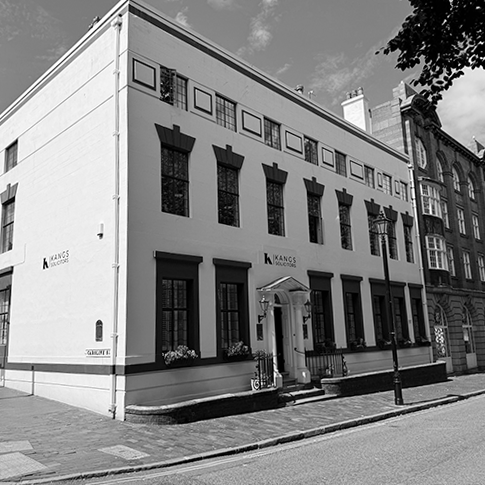Tony’s Law | Police, Crime, Sentencing and Courts Act 2022

Tony's Law named after, Tony Hudgell showed his dogged determination not to allow his physical disadvantages to overwhelm him have featured in the press extensively over the last few years.
His challenges, accomplished whilst walking on prosthetic legs, have resulted in him raising over £1.2 million for the Evelina Hospital, the hospital where he was caringly nursed during his extreme suffering when he was a baby.
A campaign resulted from the events surrounding the prosecution of his natural parents for the abuse inflicted upon him as a baby which has resulted in tougher sentencing for child cruelty offences being introduced by the Police, Crime, Sentencing, and Courts Act 2022 (‘the Act’).
Helen Holder comments upon the circumstances leading to what is now colloquially known as ‘Tony’s Law’.
The Circumstances | Kangs Criminal Defence Solicitors
The horrendous injuries inflicted.
When he was only forty-one days old, Tony suffered horrific injuries and when his birth parents, Jody Simpson and Tony Smith, eventually took him to the Evelina Hospital, it was found that he had broken fingers and toes, torn leg ligaments, a growth on his brain, his organs were starting to fail, he was partially deaf, he had septicaemia, and toxic shock syndrome.
The essential surgery included the amputation of both legs and there was a fear that he may not have the strength to survive the ordeal.
Once Tony was no longer in a critical condition, he was given hearing aids and prosthetic legs and he was subsequently adopted by Paula Hudgell and Mark Hudgell.
Prosecution and Sentence | Kangs Criminal Courts Solicitors
Although the Authorities were not intending to prosecute the parents, Paula Hudgell pushed for prosecution maintaining that it was essential for the protection of all children who were so horrifically abused and did not have any form of parental support.
Paula was successful and the parents were charged with Causing or Allowing Serious Physical Harm to a Child and Cruelty to a Person Under 16.
Trial
Having pleaded ‘Not Guilty’ the parents were tried before Maidstone Crown Court.
Although the mother, Jody Simpson, tried to avoid liability by blaming the father, Tony Smith.
Judge Philip Staman stated:
‘I cannot be sure which of you caused either, all or any of the injuries and the precise role each of you played’.
However, the Jury was quite clearly convinced of the culpability of both of them as they were both found ‘Guilty’ of both charges.
Sentencing
During his sentencing speech, Judge Philip Staman praised Tony, his adoptive parents and the NHS which resulted in applause from the Jury leading to the Judge stating:
‘this is the first time I have ever heard applause from a Jury’.
He also stated:
‘ I cannot envisage a worse case than the one I had had to deal with over the last two weeks.’
The Judge handed both defendants the maximum sentence available of ten years’ imprisonment, although it has been commented that his demeanour suggested that he favoured a longer term.
Amendments to the Law | Kangs Criminal Defence Solicitors
Following the sentencing, a campaign was led by Paula Hudgell and MP for Tonbridge, Tom Tugendhat, focused on increasing the maximum prison sentences available for child cruelty offences, given the dissatisfaction with the sentences received by Tony’s parents.
The campaign was successful in achieving an increase in the penalty available to life imprisonment by virtue of the amended Section 5 of the Domestic Violence, Crime and Victims Act 2004, set out below.
The New Offence
Section 5 of the Domestic Violence, Crime and Victims Act 2004, as amended, now states:
‘The offence
(1) A person (“D”) is guilty of an offence if—
(a) a child or vulnerable adult (“V”) dies or suffers serious physical harmas a result of the unlawful act of a person who—
(i) was a member of the same household as V, and
(ii) had frequent contact with him,
(b) D was such a person at the time of that act,
(c) at that time there was a significant risk of serious physical harm being caused to V by the unlawful act of such a person, and
(d) either D was the person whose act caused the death or serious physical harmor—
(i) D was, or ought to have been, aware of the risk mentioned in paragraph (c),
(ii) D failed to take such steps as he could reasonably have been expected to take to protect V from the risk, and
(iii) the act occurred in circumstances of the kind that D foresaw or ought to have foreseen.
(2) The prosecution does not have to prove whether it is the first alternative in subsection (1)(d) or the second (sub-paragraphs (i) to (iii)) that applies.
(3) If D was not the mother or father of V—
(a) D may not be charged with an offence under this section if he was under the age of 16 at the time of the act that caused the death or serious physical harm;
(b) for the purposes of subsection (1)(d)(ii) D could not have been expected to take any such step as is referred to there before attaining that age.
(4) For the purposes of this section—
(a) a person is to be regarded as a “member” of a particular household, even if he does not live in that household, if he visits it so often and for such periods of time that it is reasonable to regard him as a member of it;
(b) where V lived in different households at different times, “the same household as V” refers to the household in which V was living at the time of the act that caused the death or serious physical harm.
(5) For the purposes of this section an “unlawful” act is one that—
(a) constitutes an offence, or
(b) would constitute an offence but for being the act of—
(i) a person under the age of ten, or
(ii) a person entitled to rely on a defence of insanity.
Paragraph (b) does not apply to an act of D.
(6) In this section—
“act” includes a course of conduct and also includes omission;
“child” means a person under the age of 16;
“serious” harm means harm that amounts to grievous bodily harm for the purposes of the Offences against the Person Act 1861 (c. 100);
“vulnerable adult” means a person aged 16 or over whose ability to protect himself from violence, abuse or neglect is significantly impaired through physical or mental disability or illness, through old age or otherwise.’
Sentencing upon conviction
Section 5 of the Domestic Violence, Crime and Victims Act 2004 continues:
‘(7) A person guilty of an offence under this section of causing or allowing a person's deathis liable—
(a) on conviction on indictment in England and Wales, to imprisonment for life or to a fine, or to both;
(b) on conviction on indictment in Northern Ireland, to imprisonment for a term not exceeding 14 years or to a fine, or to both.
(8) A person guilty of an offence under this section of causing or allowing a person to suffer serious physical harm is liable—
(a) on conviction on indictment in England and Wales, to imprisonment for a term not exceeding 14 years or to a fine, or to both;
(b) on conviction on indictment in Northern Ireland, to imprisonment for a term not exceeding 10 years or to a fine, or to both.’
In summary, the maximum sentence for causing or allowing the death of a child or vulnerable adults has been increased from fourteen years imprisonment to life imprisonment, and the maximum sentence for causing or allowing serious physical harm to a child or vulnerable adult has also been increased from ten to fourteen years imprisonment.
How Can We Help? | Kangs Serious Crime Defence Solicitors
The Team at Kangs Solicitors is accustomed to guiding and supporting clients facing allegations of criminal conduct of every conceivable nature.
We appreciate the stress and anxiety imposed upon individuals and families in such circumstances and out Team offers compassionate but pragmatic advice and guidance.
Our Team is able to assist by providing:
- a preliminary consultation in order to assess your position,
- representation at all voluntary interviews under caution,
- representation at an interview under caution following arrest,
- preparation of pre-charge representations to the CPS or Police,
- representation at all stages in all courts including Magistrates’ and Crown Courts,
- advice on the choice of suitably experienced counsel, including KC. We have a strong working relationship with the finest criminal counsel in the country.
Who Can I Contact For Help? | Kangs National Criminal Defence Solicitors
Please do not hesitate to contact any of the following members of our Team who will be delighted to hear from you.
We welcome enquiries by telephone 0333 370 4333 or email info@kangssolicitors.co.uk.
We provide an initial no obligation consultation from our offices in London, Birmingham, and Manchester.
Alternatively, we provide initial consultations by telephone or video conferencing.
Top ranked by leading legal directories Chambers UK and the Legal 500.






